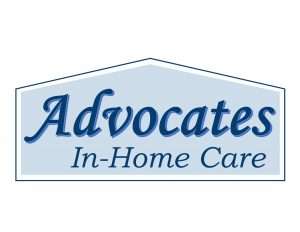Older adults are more sensitive to eye problems as they age.  Following the three simple tips below can help seniors improve eye health & protect themselves from vision loss.
Following the three simple tips below can help seniors improve eye health & protect themselves from vision loss.
Since we rely on our vision for even the most basic tasks, losing the ability to see the world around us can be frightening. As we age, it’s easy to believe deteriorating health is just part of life. But often we can slow down or even stop that process if we work to prevent common health problems. Here are three tips to fight poor vision and maintain healthy eyes no matter what your age!
Tip # 1: Add fruits, nuts, and vegetables to main dishes.
Vegetables to add: Bell peppers, tomatoes, carrots, corn, sweet potatoes, broccoli, and all dark green, leafy vegetables.
Fruits to add: Grapefruit, strawberries, oranges, lemons, berries, cantaloupe
Nuts/seeds to add: Sunflower seeds, almonds, flax seeds, chia seeds, walnuts.
Why these items? The foods listed above offer valuable nutrients that contribute to eye health. While most vegetables are high in vitamin A, citrus fruits contain a good amount of vitamin C. Nuts contribute essential fatty acids, which are also important for eye health. These foods can easily be incorporated into any diet. Cut up bell peppers, carrots, and brussel sprouts to add to a salad with dark green romaine. Grab a handful of nuts or seeds for a snack. Add some of these food items to your weekly grocery list to always have fresh food on hand.
Tip #2: Choose the right vitamins & supplements
No one wants to swallow dozens of pills every morning. However, vitamins and supplements can provide excellent sources of nutrients. They can be really helpful if your diet doesn’t regularly include a good balance of nutritious foods. Even if you are eating well, it can be difficult to get the right amount of some vitamins & minerals through diet alone.
To keep the pill amount low and the nutrition value high, consider taking a multi-vitamin. Just remember, not all vitamins are created equal. For eye health, multivitamins should have an adequate daily amount of: Vitamin A (beta-carotene), Vitamin B complex (B1, B2, B3, B5, B6, B12, folic acid, biotin, and choline), Vitamin C, Vitamin D, & Vitamin E
To keep it simple, Vitamin A through Vitamin E may help prevent (or slow down) glaucoma and help maintain general eye health. Daily amounts vary for each individual, so if you are not sure if the recommended daily dose (according to FDA standards) is right for your situation, check with your doctor. Fish oil is another supplement that may improve eye health. The omega-3 fatty acids may decrease the risk of high eye pressure and glaucoma.
Tip #3: Beware of eye drops
Common over-the-counter eye drops can actually do more harm than good due to misuse and inherent properties of the ingredients. People who start using drops might notice immediate relief. However, these eye drops are not made to treat medical conditions or long-term problems. When people self-treat, they risk leaving an issue unchecked that might turn into a major problem later on. It is highly recommended that you see an ophthalmologist for any redness, loss of vision, eye pressure, and other symptoms that cause you to question your eye health
Bonus Tip: A Caregiver Can Help You Improve Eye Health
These tips aren’t too complicated on their own. But having a caregiver by your side to make sure you have the supplements you need and are taking them properly, assist with getting more eye-healthy foods into your diet – & maybe even encourage you to eat a handful of nuts every once in a while – can help keep your eyes happy & healthy!

Recent Comments